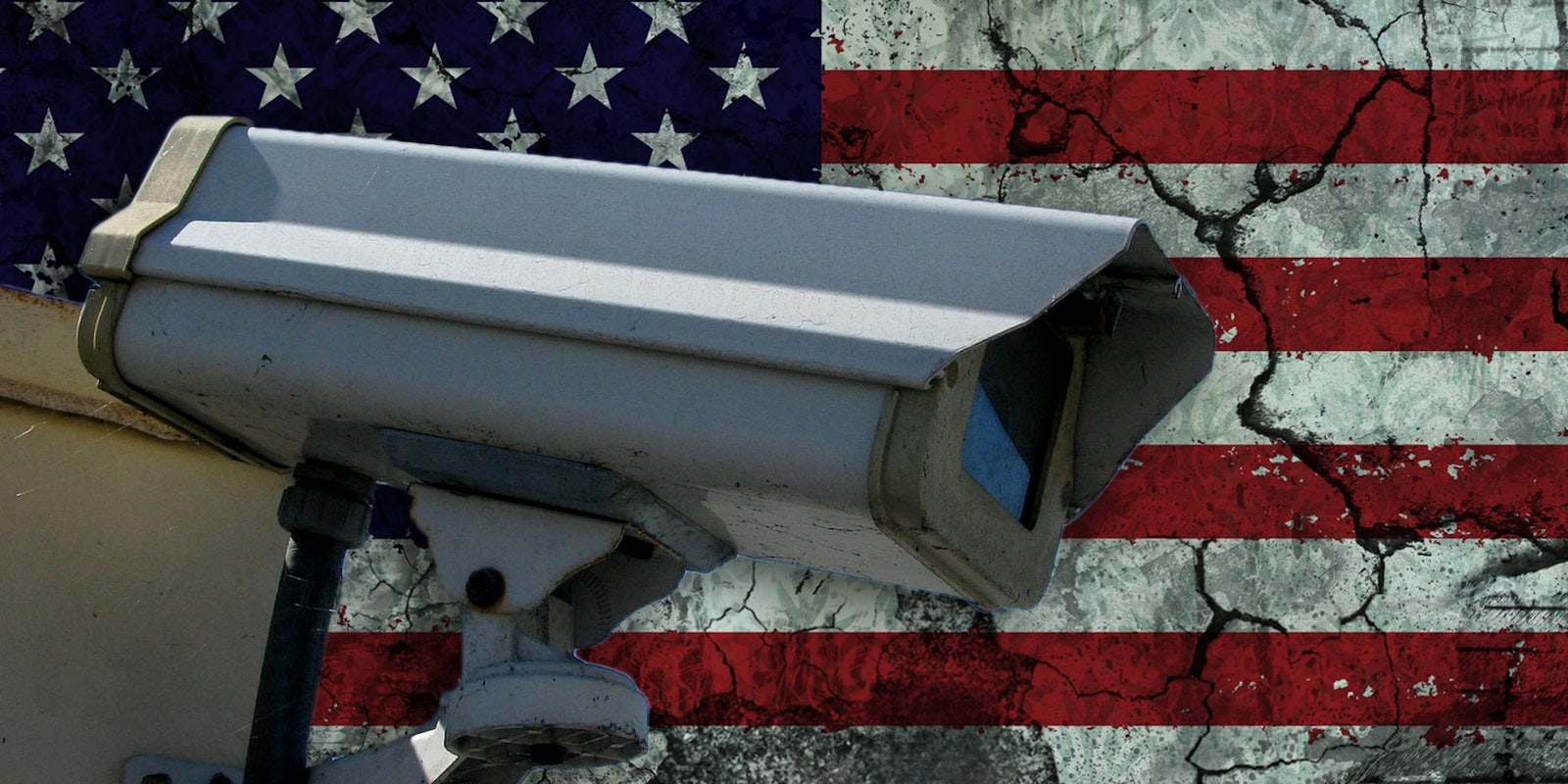The best chance to stop the NSA from tracking Americans’ phone calls now sits in Congress.
A coalition of legislators from both parties and both the House and Senate introduced a revised version of the USA Freedom Act Tuesday.
USA Freedom would amend the controversial 2001 Patriot Act in several ways. Most notably, it reform Section 215, the legal authority that gives the National Security Agency the ability to track Americans’ phone records in bulk without probable cause. A previous, “watered down” version of the bill passed the House a year earlier, but died in the Senate.
The bill has strong leadership in the House, sponsored by Congressmen John Conyers (D-Mich.), Bob Goodlatte (R-Va.), Jerry Nadler (D-N.Y.), and Jim Sensenbrenner (R-Wis.). More impressive, though, is the Senate version, sponsored by Sen. Patrick Leahy (D-Vt.) and Mike Lee (R-Utah). While 2014’s USA Freedom suffered from little support from Senate Republicans, this year’s already includes five of them—Lee—as well as cosponsors Dean Heller (R-Nev.), Ted Cruz (R-Texas), Lisa Murkowski (R-Alaska), and Steve Daines (R-Mont.).
The timing is important: Certain parts of the Patriot Act, including Section 215, are scheduled to expire unless renewed by June 1, and a bill to flat-out renew the existing language of the program has garnered tepid response.
As is perhaps inevitable for an NSA-reform bill that actually stands a chance of passing, it’s gotten mixed reviews. Privacy groups, which have universally condemned multiple NSA activities enabled by the Patriot Act, including the Section 215 program, are split on their reading of the bill. Amie Stepanovich, U.S. Policy Manager at the Internet freedom group Access, described it in a statement as “a significant step toward meaningful surveillance reform.”
But the American Civil Liberties Union refused to support it, arguing that the better path was simply to pressure lawmakers against renewing those parts of the Patriot Act that are set to expire and then explore new provisions after.
Senator Ron Wyden (D-Ore.), a longtime privacy proponent, endorsed the bill, saying in a statement provided to the Daily Dot that it “would finally end bulk collection of the personal information of millions of Americans, and make other important reforms like increasing transparency and improving the Foreign Intelligence Surveillance Court process.”
Update 6:18 ET, April 28: The White House is “encouraged” by the USA Freedom Act. Ned Price, Director for Strategic Communications for the White House’s National Security Council, provided the following statement to the Daily Dot:
Since January 2014, the President has called on Congress to enact important changes to the Foreign Intelligence Surveillance Act that enhance privacy and better safeguard our civil liberties, while still keeping our Nation safe. He has been clear that he believes we should end the Section 215 bulk telephony metadata program as it currently exists by creating an alternative mechanism that would preserve the program’s essential capabilities without the government holding the bulk data.
While we are continuing to review the text of the bill, we are encouraged by today’s introduction of bipartisan, bicameral legislation that seeks to implement these important reforms. We look forward to partnering with leaders of both parties in the House and the Senate as they work to pass a bill ahead of the June expiration of important intelligence authorities. The introduction of this legislation is an important step in the right direction.
Photo via intelfreepress/Flickr (CC BY SA 2.0) | Remix by Fernando Alfonso III


